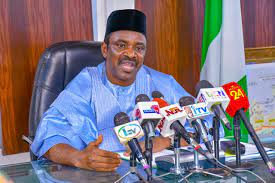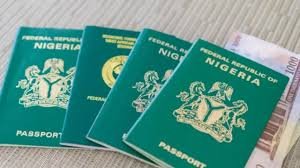The Nigerian Railway Corporation (NRC) is moving away from diesel to Liquefied Natural Gas and Compressed Natural Gas (LNG-CNG) as a cheaper and more sustainable energy source for its trains.
Minister of transportation, Said Alkali, announced that he has called for immediate technical evaluation of a proposed transit to LNG-CNG as it is cheaper and readily available in the country.
Alkali added that the switch is in line with President Bola Ahmed Tinubu’s directive to provide Nigerians with efficient, affordable, and sustainable transportation given the recent removal of subsidy on fuel.
“It is the desire of our President, Bola Ahmed Tinubu to provide an efficient, affordable, and sustainable transportation system for the people of this great country and I am sure this would go a long way in bringing down the cost of transportation”, Alkali stated.
The LNG-CNG alternative was presented for joint consideration of the transport ministry and NRC by De-Sadel consortium on Tuesday, 12th of March, at the Transport Ministry’s headquarters.
According to a statement signed by the ministry’s Director of Press and Public Relations, Olujimi Oyetomi on Thursday, Alkali has set up a 7-men technical committee to present their findings within u to 14 days and come up with far-reaching outcomes towards a successful implementation of a dual-fuel locomotive retrofit that could lead to further effective, efficient and possibly cheaper rail services for Nigerians as well as more revenue Government from its railways operations.
“A committee will be set up immediately after this interactive session, and they are to commence deliberations and discussions at the Ministry’s headquarters. They are to advise and possibly have a gas-powered locomotive ready for test run within the very short possible time, “the Minister directed.
He identified as reasonable, the proposition by De-Sadel Company’s position to retrofit their already available LNG-CNG kits on NRC’s locomotives at no cost to the government, and have the NRC’s locomotive replaced by the Company in case of damage.
Alkali, who was willing to take the risk of retrofitting an NRC’s locomotive by De-Sadel consortium immediately, asked the Permanent Secretary, Olufemi Oloruntola to constitute a combined team of mechanical engineers from the Transportation Ministry, the NRC and De-Sadel Consortium to get into action and prepare a locomotive of NRC ready for a test run. He predicated his view on progressive combination of diesel-gas usage in a ratio of 50-50 and progressively to 30-70 and invariably, 0-100.
The technical committee, which was immediately inaugurated, has since done the immediate task of evaluations. It came up with a verdict that the retrofitting is doable after a visit to the NRC’s workshop at Idu, Abuja on Wednesday, to see the models of locomotives in use by the NRC.
Speaking earlier on their proposal, the Managing Director, De-Sadel Consortium, Sam Uko, explained that the Company is in the business of retrofitting diesel engines to LNG-CNG models, and looking at the Nigerian Railway Corporation’s train services, it is ideal for the corporation and the ministry to look towards execution of this new technology on its trains.
According to him, adopting this will reduce the cost of operations and as well extend the life span of the engine, thus freeing up funds for other sectors.
The Managing Director stated that his Company already has 50 Gas-powered locomotives installed and ready to be deployed at the Ministry/NRC’s request for test running.
Uko equally assured that aside supply of these, locomotives, the Company has a crop of tested and qualified technical personnel who are available to retrofit NRC’s diesel locomotives into a gas fueled locomotive and train NRC’s engineers. This is even as he asserted that the Company will provide the corporation with a gas supply for 5 years, thus suppressing and allaying fear of scarcity of gas to run the locomotives.
Uko clarified that the implementation strategy of retrofitting into a dual-fuel locomotive shouldn’t be regarded as conversion or modification of the engines.
Aside from retrofitting NRC’s locomotives, De-Sadel Consortium also proposed security installations across the rail corridors in the country, a system that deploys real-time monitoring for the train wagons and the rail lines to deter vandals and attacks. He stated that the technology will allow much security for the rail services such that the trains can operate 24/7 to increase NRC’s turnover from gas usage and security.



